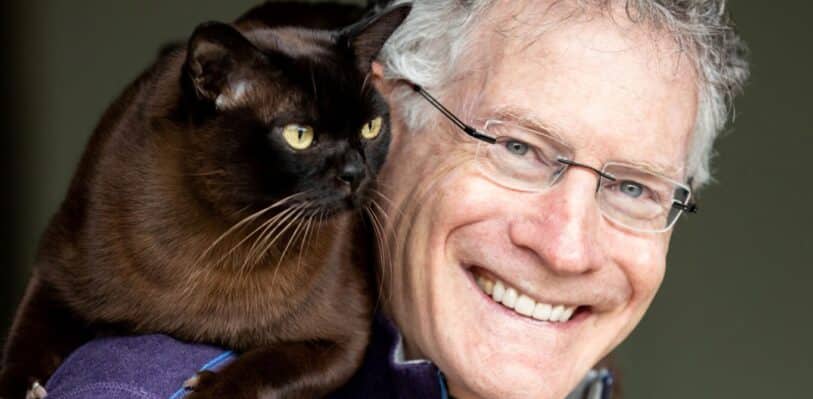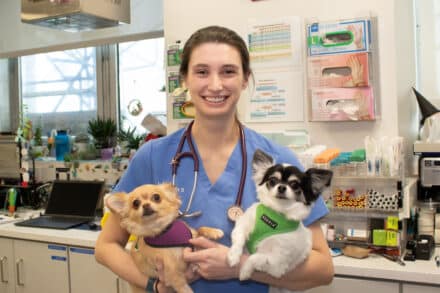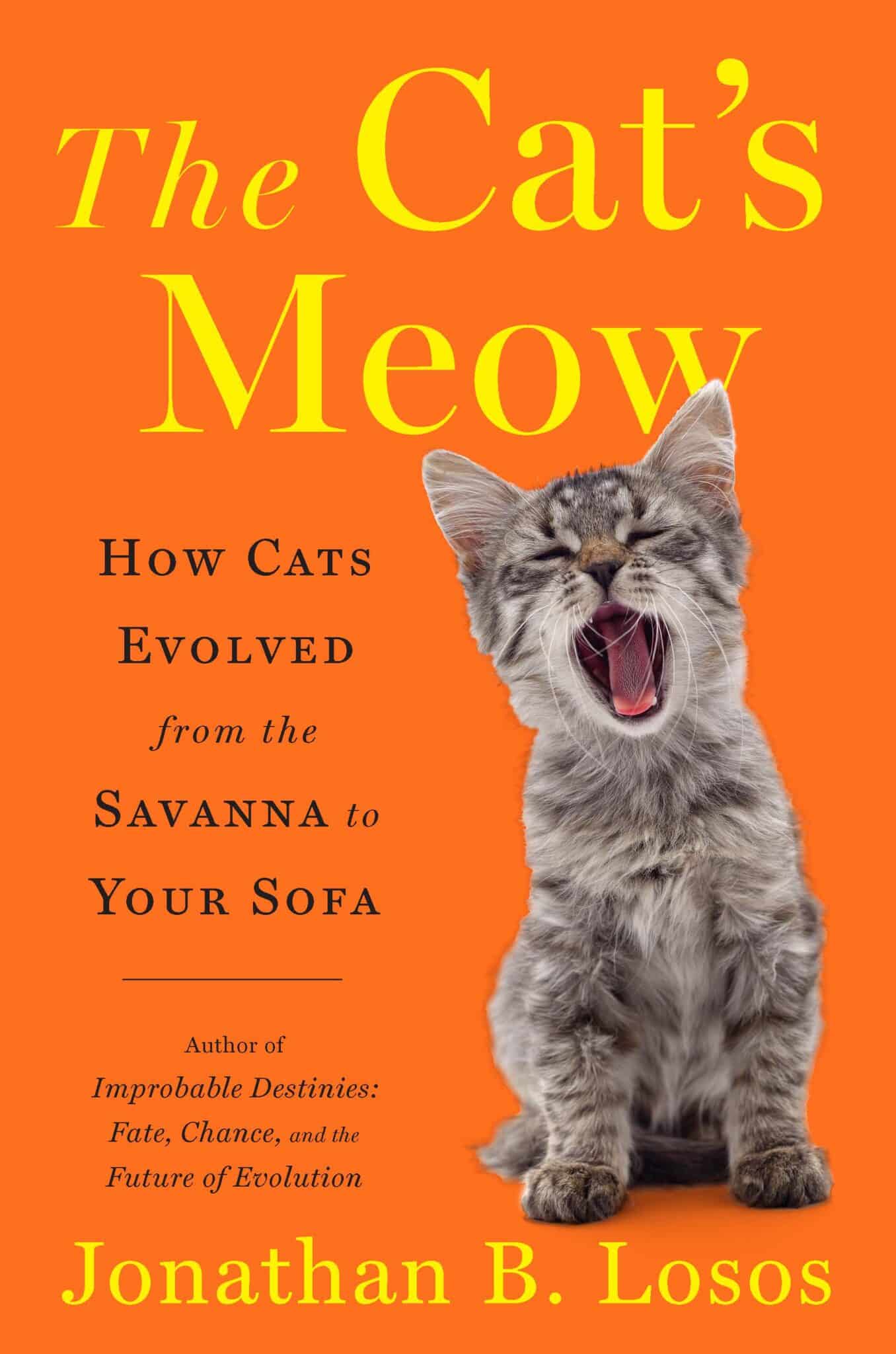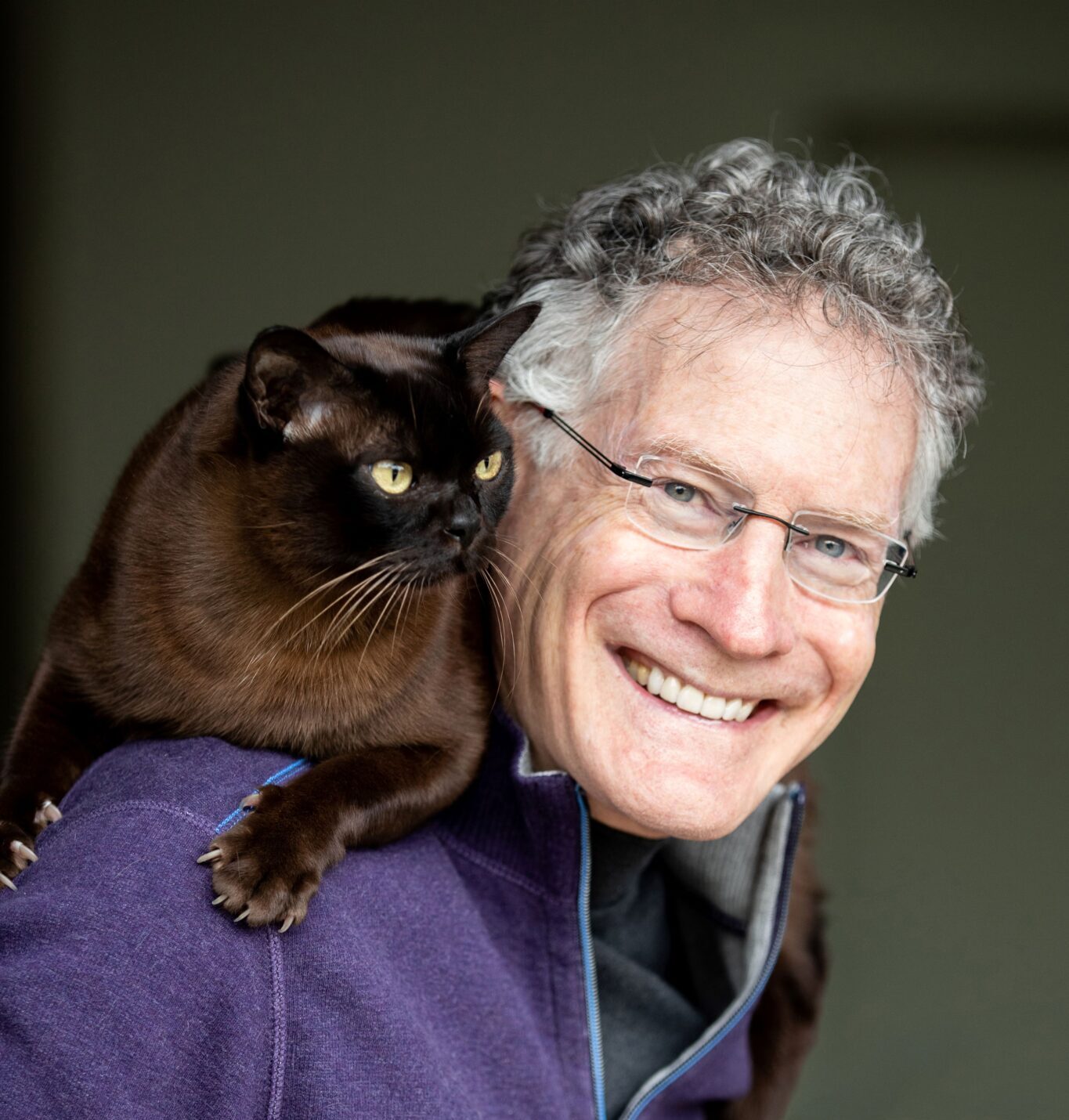
“The Cat’s Meow” with Evolutionary Biologist and Author Dr. Jonathan Losos

“The Cat’s Meow” with Evolutionary Biologist and Author Dr. Jonathan Losos
Join us on Thursday, October 26th at 6pm ET as we welcome evolutionary biologist and author Dr. Jonathan Losos to discuss his book The Cat’s Meow: How Cats Evolved from the Savanna to Your Sofa.
The domestic cat—your cat—has, from its evolutionary origins in Africa, been transformed in comparatively little time into one of the most successful and diverse species on the planet. Jonathan Losos, writing as both a scientist and a cat lover, explores how researchers today are unraveling the secrets of the cat, past and present, using all the tools of modern technology.
This is a free, online-only event hosted via Zoom (https://zoom.us/). The Zoom link will be emailed to all registered participants the day of the event. Please email UsdanInstitute@amcny.org with any questions.
About the Book
The domestic cat—your cat—has, from its evolutionary origins in Africa, been transformed in comparatively little time into one of the most successful and diverse species on the planet. Jonathan Losos, writing as both a scientist and a cat lover, explores how researchers today are unraveling the secrets of the cat, past and present, using all the tools of modern technology, from GPS tracking (you’d be amazed where those backyard cats roam) and genomics (what is your so-called Siamese cat . . . really?) to forensic archaeology. In addition to solving the mysteries of your cat’s past, it gives us a cat’s-eye view of today’s habitats, including meeting wild cousins around the world whose habits your sweet house cat sometimes eerily parallels.
Do lions and tigers meow? If not, why not? Why does my cat leave a dead mouse at my feet (or on my pillow)? Is a pet ocelot a bad idea? When and why did the cat make its real leap off the African plain? What’s with all those cats in Egyptian hieroglyphics? In a genial voice, casually deciphering complex science and history with many examples from his own research and multi-cat household, Losos explores how selection, both natural and artificial, over the last several millennia has shaped the contemporary cat, with new breeds vastly different in anatomy and behavior from their ancestral stock. Yet the cat, ever a predator, still seems only one paw out of the wild, and readily reverts to its feral ways as it occupies new lands around the world.
Humans are transforming cats, and they in turn are transforming the world around them. This charming and intelligent book suggests what the future may hold for both Felis catus and Homo sapiens.
About the Author
Dr. Jonathan Losos
Evolutionary Biologist & Author
https://www.jonathanlosos.com/
Jonathan Losos is an evolutionary biologist known for his research on how lizards rapidly evolve to adapt to changing environments. A lifelong feline enthusiast, Losos in recent years has focused his evolutionary-biologist training on our household friends, exploring what scientists have discovered about where cats came from, why they do what they do, and what the future may hold. He graduated from Harvard University and received his PhD from the University of California. After a postdoctoral stint at the University of California Davis, Jonathan moved to Washington University for his first faculty position, before leaving to become a professor of biology at Harvard and Curator in Herpetology at the university’s Museum of Comparative Zoology. He then returned to Washington University in 2018 to become the founding Director of the Living Earth Collaborative, a partnership between Washington University, the Saint Louis Zoo and the Missouri Botanical Garden. This new biodiversity center, nearly unique in partnering a leading university, zoo, and garden, has as its mission to advance knowledge and conservation of biodiversity. Losos has written more than 250 scientific papers and three books, most recently The Cat’s Meow: How Cats Evolved from the Savanna to Your Sofa (Penguin Random House, 2017), and is an author of a leading college biology textbook (Raven et al., Biology). Losos has been elected a member of the National Academy of Sciences and a fellow of the American Academy of Arts & Sciences and is the recipient of the Daniel Giraud Elliot Medal from the National Academy of Sciences, the Theodosius Dobzhansky Prize from the Society for the Study of Evolution, the Edward O. Wilson Naturalist Award from the American Society of Naturalists, and the David Starr Jordan Prize.































